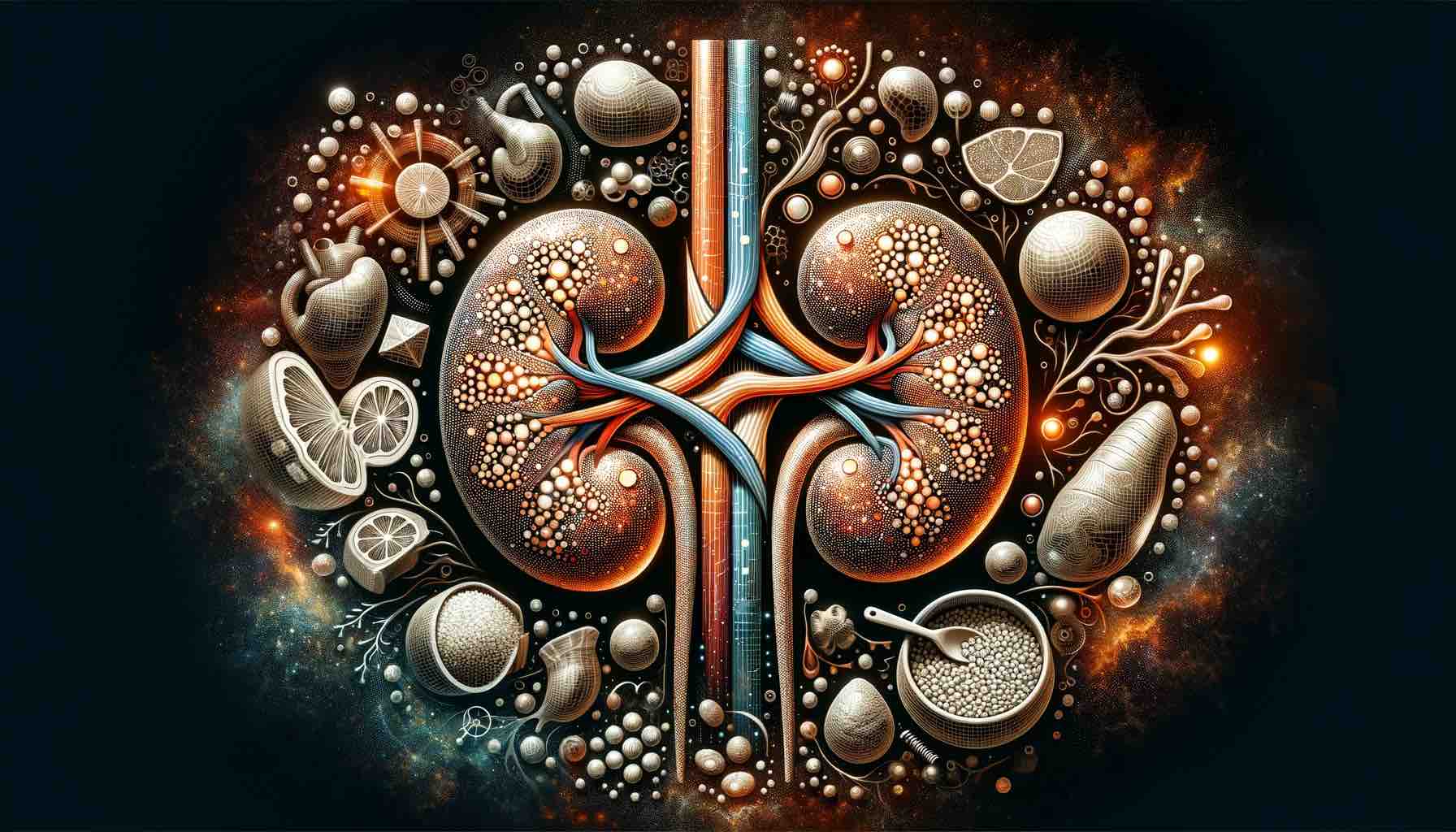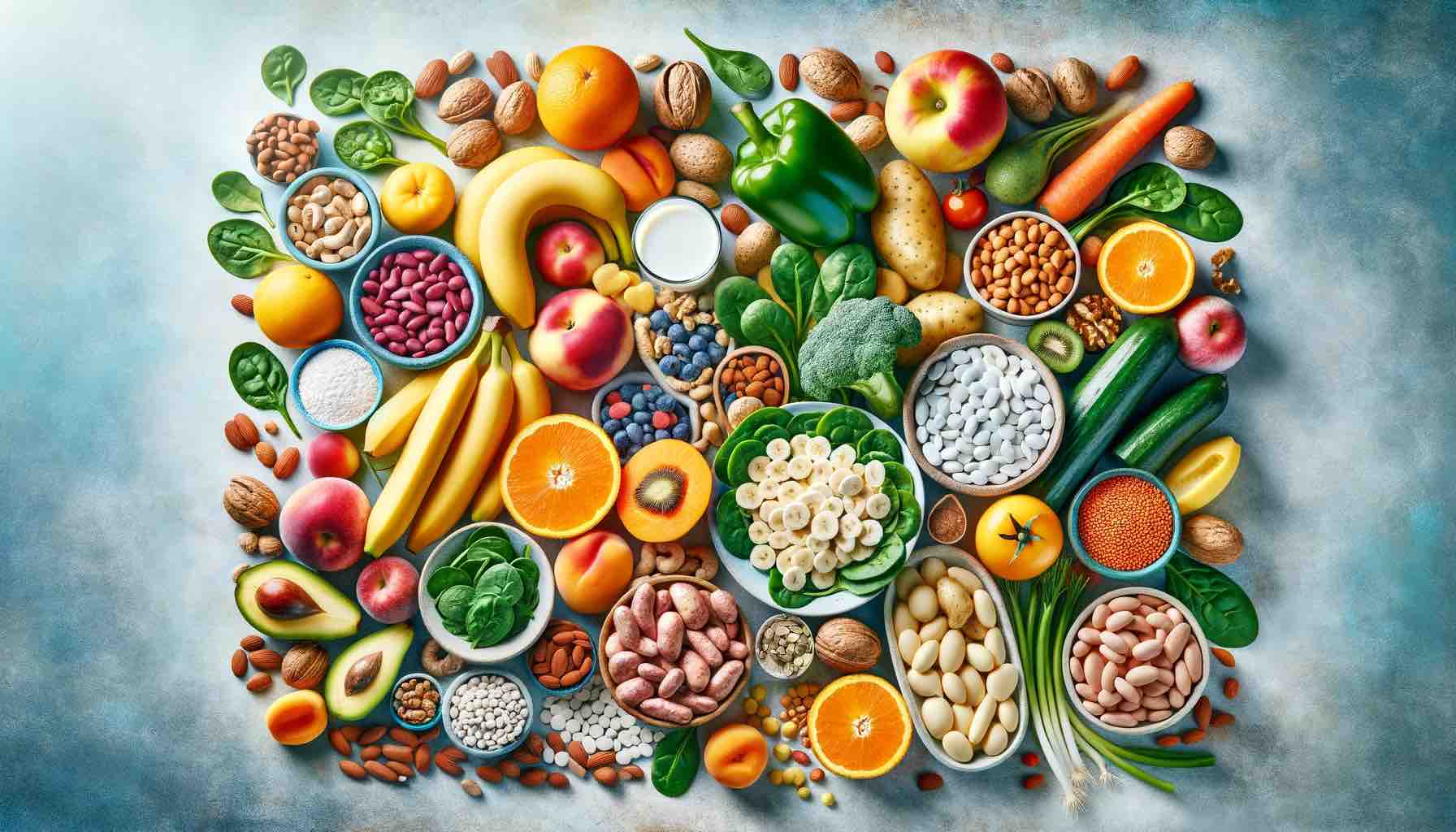
Have you ever wondered if the secret behind those muscle gains could have a hidden side? Welcome to the world of creatine, a supplement celebrated for its muscle-boosting marvels, yet shrouded in a web of myths and little-known truths. It’s not just about bulking up; there’s a whole other side to this popular supplement that rarely makes the headlines.
In this deep dive, we’re not just scratching the surface. We’re going beyond the typical discussions of muscle growth and energy boosts. Did you know that creatine’s effects might extend to your brain’s health and your mental well-being? Or that, despite its popularity, it carries potential risks that are often overlooked in the pursuit of physical perfection?
Join us as we unravel the untold story of creatine. From demystifying common myths to uncovering surprising side effects, we’re exploring the full spectrum of this powerhouse supplement. Whether you’re a seasoned gym enthusiast, a curious newcomer, or simply health-conscious, this journey into the heart of creatine is about to change the way you view your favorite supplement.
So, buckle up and prepare to be enlightened – what you learn today might just reshape your fitness journey tomorrow.
[ez-toc]
Section 1: Creatine Unveiled: What Is It and How Does It Work?
Creatine isn’t just another supplement on the shelf; it’s a phenomenon in the fitness world. But what exactly is it? In simple terms, creatine is a naturally occurring amino acid found in your body, as well as in certain foods like red meat and fish. It’s a critical player in the energy system of your cells, particularly muscle cells.
The Science of Energy:
Creatine’s claim to fame lies in its ability to rapidly produce energy during high-intensity activities, like lifting weights or sprinting. This energy boost is thanks to creatine’s role in replenishing ATP (adenosine triphosphate), the primary energy currency of the cell. When your muscles are working hard, creatine lends a hand by converting ADP (adenosine diphosphate) back to ATP, providing a quick energy source.
Muscle Growth and Performance:
The benefits of creatine extend beyond just a quick energy burst. It’s also known for its role in increasing muscle mass and improving exercise performance. By pulling more water into your muscle cells, creatine can enhance muscle growth, a process often referred to as ‘cell volumization.’ Additionally, this supplement aids in faster recovery between workouts, allowing for more intense and frequent training sessions.
Brain Health and Beyond:
Interestingly, recent research suggests that the benefits of creatine may go beyond muscles. Some studies indicate potential cognitive enhancements, particularly in tasks requiring speed and quick thinking. This is a relatively new area of exploration, and while the results are promising, it’s an aspect of creatine use that many are still unaware of.
This multifaceted supplement seems to offer more than meets the eye, but as with anything that impacts our body’s natural processes, some nuances and considerations are often glossed over.
In the next section, we’ll dive into the world of creatine’s side effects, separating fact from fiction, and shedding light on the aspects often left in the shadows.
Section 2: The Flip Side: Understanding Creatine’s Side Effects
While creatine is a staple in many athletes’ regimens, it’s essential to acknowledge that its powerful effects come with certain caveats. In this section, we delve into the side effects of creatine, offering a candid look at what many enthusiasts might not be aware of or choose to overlook.
Weight Gain and Water Retention:
One of the immediate effects of creatine supplementation is increased water retention in muscles. This can lead to a rapid increase in weight, a factor that might be misleading for those on a weight loss journey. While this isn’t harmful, understanding this aspect can help manage expectations regarding body composition changes.
Impact on Kidney and Liver Function:
A concern often voiced about creatine is its potential impact on kidney and liver function. While studies generally show that creatine is safe for individuals with healthy kidneys, those with pre-existing kidney issues should approach creatine use with caution. Regular monitoring and consultation with healthcare professionals are advised for such individuals.
Digestive Discomfort:
Some users report experiencing digestive issues like bloating, stomach pain, or diarrhea when taking creatine, especially when consumed in large doses. To minimize these effects, it’s recommended to start with a lower dose and gradually increase it, allowing the body to adjust.
Muscle Cramping and Dehydration:
Creatine can draw water into muscles, potentially leading to dehydration and muscle cramping, especially if adequate hydration isn’t maintained. This underscores the importance of drinking plenty of water throughout the day, particularly during intense training periods.
Mental Health Considerations:
Emerging research points to the potential impact of creatine on mental health, including effects on mood and cognitive function. While this area is still under study, it’s an intriguing development that warrants attention, especially for those using creatine as a long-term supplement.
In recognizing these side effects, the key is not to discourage the use of creatine but to promote informed and safe supplementation practices. Awareness and understanding of these potential issues can lead to a more balanced and health-conscious approach to supplement use.
Next, we’ll tackle some of the most common myths surrounding creatine, separating fact from fiction to give you a clearer picture of what to expect from this popular supplement.
Section 3: Dispelling Myths: Separating Creatine Fact from Fiction
The world of supplements is rife with myths and half-truths, and creatine is no exception. In this section, we confront some of the most pervasive myths about creatine, equipping you with factual information to make informed decisions.
Myth 1: Creatine Causes Kidney Damage in Healthy Individuals
One of the most enduring myths is that creatine supplementation leads to kidney damage. Extensive research has shown that in healthy individuals, creatine, when used as directed, does not harm the kidneys. This myth likely stems from the fact that creatine can increase creatinine levels, a marker used to assess kidney function, but this increase is not indicative of kidney damage.
Myth 2: It’s Only for Bodybuilders
Creatine is often associated exclusively with bodybuilding, but its benefits extend to a wide range of sports and activities. Endurance athletes, team sport players, and even individuals engaging in regular fitness routines can benefit from the enhanced energy production and recovery that creatine provides.
Myth 3: More Creatine Means More Muscle
There’s a common misconception that higher doses of creatine will lead to greater muscle gains. However, the body can only utilize a certain amount of creatine. Exceeding this amount doesn’t amplify benefits and can contribute to the side effects mentioned earlier, like digestive issues and water retention.
Myth 4: Creatine Is a Steroid
Creatine is sometimes mistakenly classified as a steroid. This is far from the truth. Creatine is a naturally occurring amino acid, not a synthetic drug. It works differently from steroids and is not associated with the severe side effects that steroids are known for.
Myth 5: Instant Results Can Be Expected
Many believe that creatine provides immediate results. In reality, the effects on muscle energy and performance build up over time. Consistent usage over weeks is typically required to notice significant performance enhancements.
Debunking these myths not only clarifies misconceptions but also highlights the importance of approaching creatine use with a balanced perspective. Understanding what creatine is and isn’t can enhance its safe and effective use.
In the next section, we offer practical tips on how to safely incorporate creatine into your routine, ensuring you reap the benefits while minimizing potential risks.
Section 4: Smart Supplementation: Tips for Safe Creatine Use
Knowing the potential side effects and myths of creatine, let’s explore how to use it safely and effectively. Here, we provide practical tips to maximize the benefits of creatine while minimizing risks.
Start with a Loading Phase (If Appropriate):
A ‘loading phase’ can rapidly increase muscle creatine stores. This involves taking a higher dose (around 20 grams, split into four servings) for 5-7 days, followed by a maintenance phase of 3-5 grams daily. However, this is optional; a steady dose of 3-5 grams daily without loading can also be effective, albeit with slower results.
Stay Hydrated:
Given creatine’s tendency to increase water retention in muscles, staying well-hydrated is crucial. Drink ample water throughout the day, especially during workouts, to avoid dehydration and potential cramping.
Monitor Your Dose:
Stick to the recommended dose of creatine. Overdoing it won’t accelerate muscle gains and can lead to the side effects mentioned earlier, like digestive issues. If you experience side effects, consider reducing the dose or consulting a healthcare professional.
Choose High-Quality Supplements:
Not all creatine supplements are created equal. Opt for high-quality, pure creatine monohydrate, which is the most researched and proven form. Be wary of supplements with unnecessary additives or fillers.
Timing Matters:
While there’s ongoing debate about the best time to take creatine, some evidence suggests taking it close to your workout, either before or after, can be beneficial. Experiment with timing to see what works best for your body and routine.
Diet and Creatine:
Your diet can influence creatine’s effectiveness. Consuming it with a carbohydrate or protein-based meal can improve its absorption due to the release of insulin. Also, ensure your overall diet is balanced and supports your fitness goals.
Consult Healthcare Professionals if Needed:
If you have pre-existing health conditions, especially related to the kidneys or liver, consult with a healthcare professional before starting creatine supplementation.
By following these tips, you can use creatine more safely and effectively, maximizing its benefits while being mindful of your health. Remember, supplements are just one piece of the puzzle in achieving your fitness goals.
In the concluding section, we’ll wrap up our comprehensive look at creatine, leaving you with key takeaways and a final word on this powerful supplement.
Section 5: Concluding Thoughts: Creatine in Perspective
As we reach the end of our journey into the world of creatine, it’s clear that this supplement is more than just a tool for muscle enhancement. It’s a complex substance with a range of benefits and potential side effects, surrounded by myths and truths that deserve careful consideration.
Balancing Benefits and Risks:
Creatine offers significant advantages for muscle strength, performance, and possibly cognitive function. However, like any supplement, it should be used thoughtfully, respecting its potential impact on the body. The key is to balance its benefits with a mindful approach to minimize risks.
Individual Responses Vary:
Remember, every individual’s response to creatine will be different. Factors like diet, exercise routine, and individual health status play a role in how your body reacts to creatine. Listening to your body and adjusting your supplementation accordingly is crucial.
Ongoing Research and Evolving Understanding:
The science of creatine is evolving. New research continues to shed light on its effects, benefits, and best practices for use. Stay informed and be open to adjusting your approach as new information emerges.
Final Word:
Creatine is not a magic pill for instant muscle growth or athletic prowess. It’s a tool that, when used correctly, can significantly enhance your fitness journey. However, it requires a responsible approach, understanding of its effects, and respect for your body’s limits.
We hope this exploration has provided you with a comprehensive understanding of creatine, enabling you to make informed decisions about its use. Whether you’re a seasoned athlete or a fitness enthusiast, remember that supplements are just one part of a holistic approach to health and well-being.
Join Our Facebook Community 🤝
Don’t forget, if you’re looking for a place to discuss health, nutrition, and fitness topics just like this one, consider joining our Facebook community, EatLo. We’re a group of food and health enthusiasts ready to share experiences, tips, recipes, and more! 🎉🍎
Click here to join the EatLo Facebook Group. Let’s embark on this health and wellness journey together! 🚶♀️🚶♂️
Tags: creatine, side effects, fitness, supplementation, exercise, muscle growth, water retention, kidney health, digestive health, dehydration, weight gain, mental health, medication interaction













